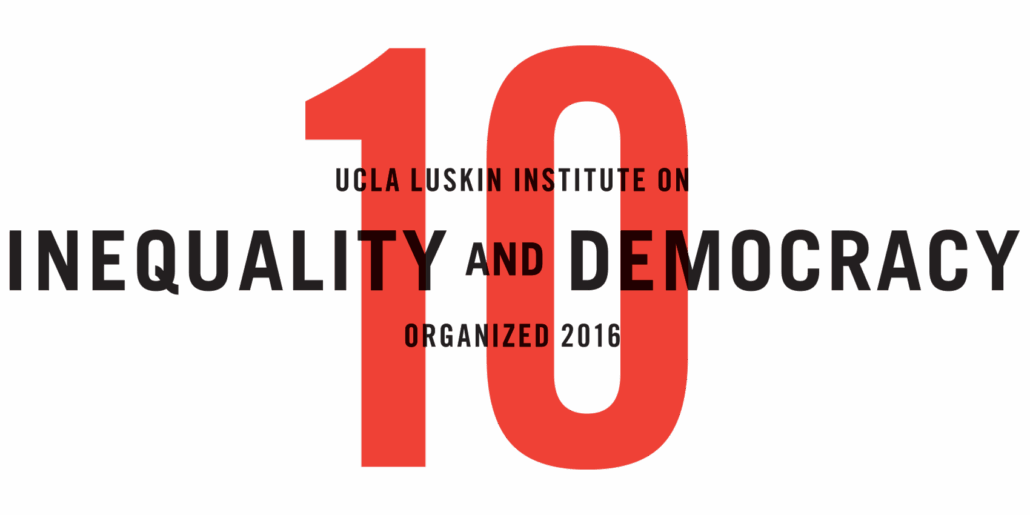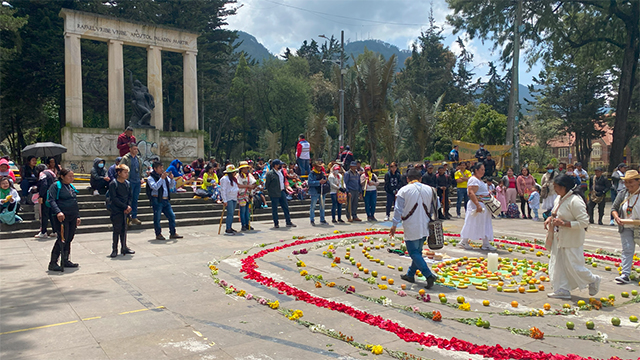Decolonizing the National Park, Bogotá Colombia Sept 29, 2022. Image credit: Andrés F. Ramirez
Learning Alongside Indigenous Urban Struggles
Andrés F. Ramirez, Urban Planning, UCLA
Ideas and Organizing Doctoral Awardee 2023-24
In Colombia, Indigenous rights are constitutionally protected, but constrained by territorial and legal geographies. The result is a form of apartheid that restricts citizenship and denies Indigenous rights in a crucial location: the city. As part of his ongoing dissertation research, Andrés F. Ramirez addresses this disparity and accompanies Indigenous urban communities as they assert their rights to the city.
Fundamentally, Indigenous urban research asserts that Indigenous people have always been part of urban life, and that they thus have an intrinsic right to inhabit the city and shape its future. Yet, as this research also shows, the settler and postcolonial city persistently renders Indigenous people invisible. Exercises in participatory action document recurring episodes of state violence that are met with insurgent resistance. But this research also celebrate Indigenous traditions of knowledge making and considers its place in the city. The project highlights collective practices for cultural and political survival, as well as creative strategies reimagine what it means to be Indigenous in the city.
Transcending conventional research methods, the group employed arts-based tools that expanded the possibilities for exchange beyond textual and linguistic formats. They inhabitted mainstream cultural spaces of high visiblity that have historically excluded Indigenous people, as a strategy to engage with broader publics. This approach included spiritual and ceremonial practices in public spaces and museums, which fostered exchange and healing. Several of these activities were woven into the research program in response to community interests and needs, and in alignment with principles of participatory action research. Though the project continues to develop, initial outcomes include collaborative media productions, exhibitions, workshops, and community-based events, all of which contribute to enhancing the visibility of Indigenous urban claims in public discourse. By highlighting the revolutionary, resilient and liberatory nature of these struggles, the project aspires to reframe the condition of Indigenous urban communities, beyond victimization and despair, emphasizing their transformative potential.




